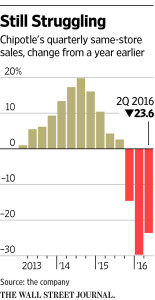Good Food Concepts, LLC, doing business as Ranch Foods Direct, a Colorado Springs, Colo. establishment, is recalling approximately 2,606 pounds of non-intact beef products that may be contaminated with E. coli O157:H7, the U.S. Department of Agriculture’s Food Safety and Inspection Service (FSIS) announced today.
 The non-intact beef items were produced on June 6, 7, and 8, 2016. The following products are subject to recall:
The non-intact beef items were produced on June 6, 7, and 8, 2016. The following products are subject to recall:
The products subject to recall bear establishment number “EST. 27316” inside the USDA mark of inspection and “PACKED ON” dates of June 6, 7, and 8, 2016. These items were shipped to wholesale and retail locations in Colorado.
FSIS was notified of an E. coli O157:H7 illness possibly associated with ground beef consumption on July 14, 2016. Working in conjunction with the Colorado Department of Public Health and Environment and the El Paso County Public Health Department, FSIS determined that there is a possible link between the ground beef products from Ranch Foods Direct and this illness. Based on epidemiological investigation, one case-patient has been identified in Colorado with an illness onset date of June 12, 2016. FSIS confirmed ground beef products originating from Ranch Foods Direct were adulterated with E. coli O157:H7 on July 25, 2016 through laboratory testing and traceback investigation. FSIS continues to work with the Colorado Department of Public Health and Environment and the El Paso County Public Health Department on this investigation and provides updated information as it becomes available.
FSIS and the company are concerned that some product may be frozen and in consumers’ freezers.
The only way to confirm that ground beef is cooked to a temperature high enough to kill harmful bacteria is to use a food thermometer that measures internal temperature, http://1.usa.gov/1cDxcDQ.
Media and consumers with questions regarding the recall can contact Dave Anderson, Manager, at (719) 574-0750 x 241.











